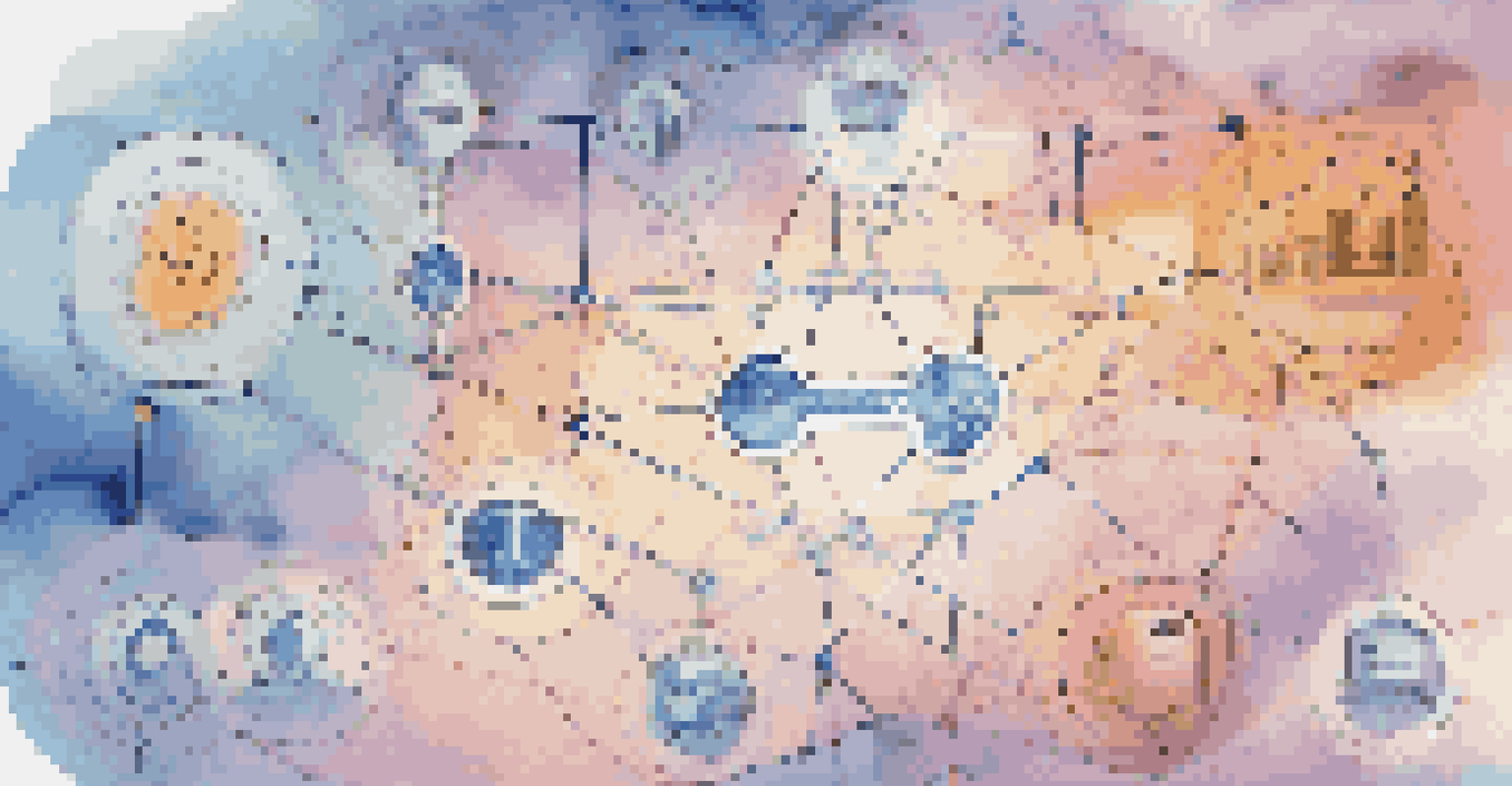Understanding the Role of Oracles in Blockchain Technology

What Are Oracles and Why Do They Matter?
Oracles play a crucial role in the blockchain ecosystem by bridging the gap between on-chain and off-chain data. They enable smart contracts to access external information, which is vital for executing conditions based on real-world events. Without oracles, blockchains would be isolated systems, unable to react to changes in the external environment.
Data is the new oil. It’s valuable, but if unrefined it cannot really be used. It has to be changed into gas, and then it can drive a car.
Imagine a smart contract as a vending machine: it needs specific inputs like money and product selection to function. Oracles are the reliable sources of data that provide those inputs, ensuring the machine can deliver the right product based on the user's choices. This connection is essential for the broader application of blockchain technology beyond cryptocurrencies.
In a world increasingly driven by data, the need for accurate and timely information is paramount. Oracles enhance the functionality of blockchain by allowing it to interact with various data sources, thus broadening its use cases across industries like finance, insurance, and supply chain management.
Types of Oracles: A Closer Look
There are several types of oracles, each serving a unique purpose. For instance, software oracles fetch data from online sources, while hardware oracles obtain information from the physical world through IoT devices. Understanding these distinctions helps in choosing the right oracle solution for specific blockchain applications.

Another type is the consensus oracle, which aggregates data from multiple sources to provide a more reliable output. This is akin to getting a second opinion from a group of experts rather than relying on a single source. Such diversity in data sources minimizes the risk of inaccuracies, which is crucial when dealing with sensitive transactions.
Oracles Connect Blockchain to Reality
Oracles bridge the gap between on-chain and off-chain data, enabling smart contracts to execute based on real-world information.
Additionally, there are centralized and decentralized oracles. Centralized oracles operate through a single data provider, which can be a point of failure. On the other hand, decentralized oracles leverage multiple data sources, ensuring a more robust and trustworthy mechanism for validating real-world information.
How Oracles Enhance Smart Contracts
Smart contracts are self-executing agreements with the terms directly written into code. However, their effectiveness is limited without real-world data inputs. Oracles enable these contracts to function as intended by providing necessary information, such as price feeds or event outcomes.
In the age of data, we are often faced with decisions that require us to rely on information from external sources. Oracles are the key to bridging that gap.
For example, consider a smart contract for a decentralized insurance policy that pays out automatically if a flight is delayed. An oracle can provide real-time flight data, allowing the contract to execute payments without human intervention. This automation not only increases efficiency but also builds trust in the system.
Moreover, oracles can facilitate complex contracts that depend on multiple data points. By integrating various sources, developers can create dynamic agreements that adapt based on changing conditions, making smart contracts more versatile and applicable in various sectors.
The Importance of Trust and Security in Oracles
Trust is a critical component in the relationship between oracles and blockchain technology. Since oracles provide essential data that can influence smart contract outcomes, any inaccuracies or manipulation can lead to significant consequences. This makes the integrity of the oracle data sources paramount.
To enhance security, decentralized oracles come into play. By using multiple sources and consensus mechanisms, they reduce the risk of single points of failure or data tampering. This approach is similar to crowdsourcing information where the majority opinion is likely to be correct.
Types of Oracles Enhance Functionality
Different types of oracles, including software, hardware, and decentralized options, cater to various needs and improve the reliability of data.
Furthermore, implementing cryptographic techniques can protect the data being transmitted from oracles to blockchains. This ensures that the information remains unaltered during transit, bolstering the overall security of the smart contract processes and fostering greater trust among users.
Challenges Facing Oracle Solutions
Despite their benefits, oracles face several challenges that can hinder their effectiveness. One major issue is the potential for data discrepancies, where different oracles might provide conflicting information. This inconsistency can lead to confusion and mistrust among users relying on that data.
Additionally, the integration of oracles with existing blockchain systems can be complex. Developers must ensure that the oracle is compatible with the specific blockchain protocols and can handle the required data types effectively. This technical challenge can slow down the adoption of oracle solutions in various projects.
Finally, regulatory and compliance issues surrounding data use and privacy must also be considered. As oracles interact with external data, they may inadvertently expose sensitive information, leading to potential legal implications. Addressing these challenges is essential for the continued growth and reliability of oracle technology.
Real-World Applications of Oracles
Oracles have found applications across various industries, significantly enhancing how organizations operate. In finance, for instance, they provide real-time price feeds for cryptocurrencies, enabling accurate trading and investment strategies. This real-time data is crucial for traders looking to make informed decisions in a fast-paced market.
In the realm of insurance, oracles can automate claims processing by pulling data from multiple sources to verify events, such as natural disasters. This automation not only speeds up payouts but also reduces administrative costs and fraud, bringing a level of efficiency previously unattainable.
Trust and Security are Crucial
The integrity of oracle data is vital, as inaccuracies can impact smart contract outcomes, highlighting the importance of decentralized solutions for security.
Moreover, supply chain management benefits from oracles by providing accurate tracking data. Companies can monitor shipments in real-time and respond to delays or issues promptly. This transparency improves accountability and enhances customer satisfaction, showcasing the transformative potential of oracle technology.
The Future of Oracles in Blockchain Technology
As blockchain technology continues to evolve, the role of oracles is likely to expand as well. With the increasing demand for decentralized applications (dApps), the need for reliable data feeds will become even more pronounced. This creates a ripe environment for innovation in oracle solutions, paving the way for more advanced and secure offerings.
Emerging technologies, such as artificial intelligence and machine learning, could further enhance oracle functionality. By analyzing vast amounts of data, these technologies can improve the accuracy and reliability of the information provided to smart contracts, making them even more effective in decision-making processes.

Ultimately, as industries recognize the value of integrating oracles into their blockchain solutions, we can expect a surge in collaborative efforts between developers and data providers. This partnership will not only enhance the capabilities of blockchain technology but also lead to the creation of new applications that leverage the strengths of both oracles and decentralized systems.